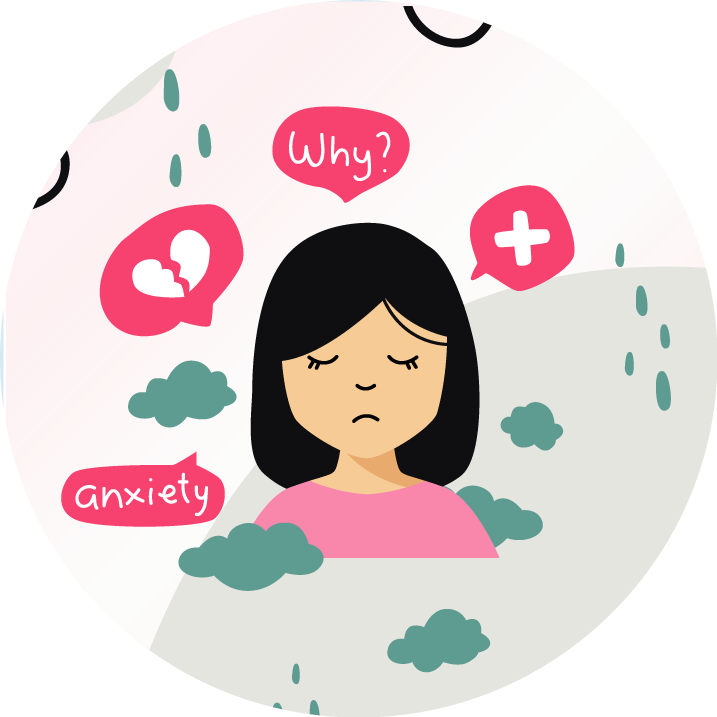Clarity, Consent, and Culture: 3 Aspects of Modern Relationship

Clarity, Consent, and Culture: 3 Aspects of Modern Relationship
September 19 2025 TalktoAngel 0 comments 61 Views
Modern relationships are no longer defined solely by tradition or societal expectations—they are shaped by evolving ideas of identity, respect, and mutual understanding. In this context, three aspects stand out as foundational for relationship health: clarity, consent, and culture. These pillars influence not only how couples interact but also how they navigate challenges such as stress, anxiety, depression, couple conflicts, toxic dynamics, and family problems. Strengthening them builds resilience and helps partners transform frustration into growth.
Clarity: Knowing Yourself and Your Relationship
Self-concept clarity, or having a well-defined and stable sense of self, is a powerful contributor to relationship satisfaction and commitment. Research shows that individuals with higher self-concept clarity report greater relationship quality, investment, and the ability to include their partner in their sense of self—boosting intimacy and reducing conflict. Relationship breakups, by contrast, can erode self-concept clarity and increase emotional distress
Moreover, the idea of couple identity clarity—how clearly two partners understand "who they are as a couple"—has been linked to stronger relationship commitment and a decreased likelihood of dissolution. Particularly, resolving conflicts successfully strengthens this shared identity, reinforcing the relationship’s persistence
In family contexts marred by stress or toxic relational patterns, a lack of clarity—either personal or mutual—can heighten frustration, anxiety, and the perception of conflict. Counselors often emphasize building clarity through self-reflection and shared meaning-making, thus fostering resilience when family dynamics become fraught.
Consent: Beyond “Yes”
While consent is most commonly discussed in sexual contexts, modern perspectives advocate for affirmative, enthusiastic, and ongoing consent—whether in sexual behavior, emotional exchanges, or personal boundaries.
Experts argue that treating consent as a mere formality or checkbox misses its deeper relational value. For instance, philosopher Quill R.. Consent should not stifle ambiguity or messiness but rather allow a dynamic, responsive interplay between Kukla critiques narrow, clinical approaches to consent, urging a broader view that embraces mutual negotiation, pleasure, and creativity. Relationship educator Chanel Contos further underscores the importance of reframing consent as a comforting, natural progression in healthy relationships—especially in dating contexts. Rather than feeling awkward, clear consent builds respect and reduces miscommunication.
Misunderstanding consent often fuels conflict, stress, and even trauma. Historical studies showed that many individuals erroneously interpret sexual interest as consent. Clarifying this expression through explicit, enthusiastic "yes" can significantly reduce anxiety and relational friction. Counselors frequently guide couples in practicing clear consent, bolstering trust and mitigating feelings of frustration, emotional disconnection, or coercion.
Culture: Communicating with Context
Culture profoundly shapes how individuals communicate, understand emotions, and negotiate boundaries. The anthropological distinction between high-context and low-context cultures illustrates this: high-context cultures rely on implicit, relational communication cues, while low-context cultures favor explicit, direct messaging.
This difference matters in relationships: what seems clear in one cultural context may feel vague or even manipulative in another. Counselors working across cultural lines must help partners develop shared clarity—recognizing culturally influenced communication styles and adapting to ensure mutual understanding. This cultural attunement reduces miscommunication, frustration, and anxiety, and reinforces relational resilience.
Interplay with Stress, Anxiety, Depression, Conflict, and Toxic Dynamics
Stress, anxiety, and depression are both products and drivers of relational clarity problems, consent breaches, and cultural misunderstandings. Lack of personal or couple clarity can exacerbate identity confusion, leading to emotional distress. Similarly, repeated violations of consent—whether overt or ambiguous—can erode trust and foster toxic relational patterns.
Cultural misalignment may deepen conflicts: if one partner expects indirect communication, while the other expects directness, both may feel unseen, frustrated, or judged. Therapists often support couples in navigating these differences, fostering clear communication and cultural sensitivity to reduce toxic cycles and promote resilience.
Building Resilience Through Clarity, Consent, and Cultural Sensitivity
Resilience in relationships isn't just bouncing back—it's learning how to stay connected through adversity. It involves:
- Clarity: Understanding personal needs and jointly defining relationship goals and values.
- Consent: Ensuring mutual agreement in emotional and physical exchanges, and integrating consent as an ongoing, caring practice.
- Cultural Awareness: Being attuned to communication styles, emotional norms, and cultural expectations shaping your dynamic.
Building these pillars can reduce couple conflicts, manage family stress, and counter frustration. When partners clarify boundaries, express mutual consent, and respect cultural rhythms, they create a buffer against the emotional toll of everyday challenges.
Role of Counselors and Therapists
Mental health professionals—counselors and therapists—play a vital role in facilitating clarity, consent, and cultural navigation:
- Clarifying Identity: They help individuals articulate self-concept and couples develop shared relationship identity.
- Teaching Consent Practices: They coach clients to cultivate affirmative consent as a respectful norm.
- Bridging Cultural Gaps: They guide partners in understanding and adapting to different communication expectations and cultural scripts.
These interventions not only improve relationship satisfaction but also alleviate stress, anxiety, depression, and cyclical conflict.
Conclusion
In modern relationships, the synergy of clarity, consent, and culture forms a sturdy foundation for connection and well-being. Clarity fosters self-awareness and mutual understanding; consent ensures respectful, responsive engagement; and cultural attunement prevents misunderstanding and strengthens harmony.
Amid stress, anxiety, depression, and conflict—or even toxic patterns and family strains—these three pillars provide a path toward resilience, clarity, and flourishing. With the support of counselors or therapists, individuals and couples can cultivate these pillars to build relationships that are respectful, joyful, and deeply connected.
Contributed by: Dr (Prof.) R K Suri, Clinical Psychologist & Life Coach, & Ms. Sheetal Chauhan, Counselling Psychologist
References
- Emery, L. F., Gardner, W. L., Carswell, K. L., & Finkel, E. J. (2020). Who are “We”? Couple identity clarity and romantic relationship commitment.[Publication details] ResearchGate.
- Lewandowski Jr., G. W., McIntyre, K. P., & Mattingly, B. A. (2017). Self-concept clarity and romantic relationships. In Self-Concept Clarity: Perspectives on Assessment, Research, and Applications (pp. 107–). Springer. ResearchGate+1.
- Kukla, Q. R. (2025). Sex beyond yes: Pleasure and agency for everyone [Book review]. The Washington Post. The Washington Post.
- Contos, C. (2024). ‘Comforting, not awkward’: Relationship expert Chanel Contos busts major dating myth. New York Post. New York Post.
- Mattson, R. (2017). Most men confuse sexual interest with consent, a new paper shows. Teen Vogue. Teen Vogue.
- Wikipedia. (2025, recent update). High-context and low-context cultures. In Wikipedia. Wikipedia.
Leave a Comment:
Related Post
Categories
Related Quote

“Anxiety is a thin stream of fear trickling through the mind. If encouraged, it cuts a channel into which all other thoughts are drained.” - Arthur Somers Roche

"It is okay to have depression, it is okay to have anxiety and it is okay to have an adjustment disorder. We need to improve the conversation. We all have mental health in the same way we all have physical health." - Prince Harry

“You say you’re ‘depressed’ – all I see is resilience. You are allowed to feel messed up and inside out. It doesn’t mean you’re defective – it just means you’re human.” - David Mitchell, Cloud Atlas

"You are allowed to feel messed up and inside out. It doesn't mean you're defective—it just means you're human." - David Mitchell, Cloud Atlas

“Depression is your body saying, ‘I don’t want to be this character anymore. It’s too much for me.’ You should think of the word ‘depressed’ as ‘deep rest.’ Your body needs to be depressed. It needs deep rest from the character that you’ve been trying to play.” - Jim Carrey
Best Therapists In India




















SHARE